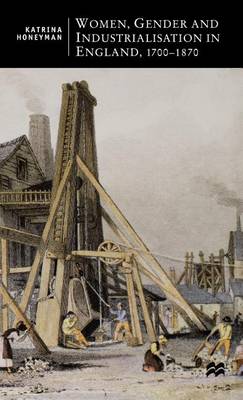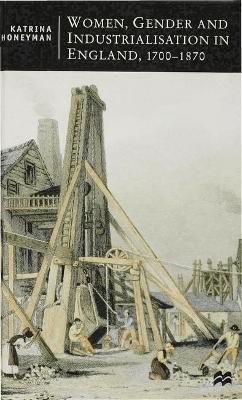British Studies
2 total works
Women have played an important role in the labour force for hundreds of years, yet it is often assumed that their work was less valuable than the tasks performed by men. Until recently, interpretations of industrialization tended to marginalise both the contribution of female labour and the relevance of a gendered workforce to the process of industrial change. During the past twenty years, however, gender issues have been placed more centrally in analyses of historical processes and our understanding of industrialization has benefited greatly from this trend. In Women, Gender and Industrialization in England, Honeyman draws on such recent scholarship to suggest that the contributions of women workers influenced the direction and progress of the nation's manufacturing industry.
Women, Gender and Industrialization in England, 1700-1870
by Katrina Honeyman
Published 12 June 2000
Women have played an important role in the labour force for hundreds of years, yet it is often assumed that their work was less valuable than the tasks performed by men. Until recently, interpretations of industrialization tended to marginalise both the contribution of female labour and the relevance of a gendered workforce to the process of industrial change. During the past twenty years, however, gender issues have been placed more centrally in analyses of historical processes and our understanding of industrialization has benefited greatly from this trend. In Women, Gender and Industrialization in England, Honeyman draws on such recent scholarship to suggest that the contributions of women workers influenced the direction and progress of the nation's manufacturing industry.

